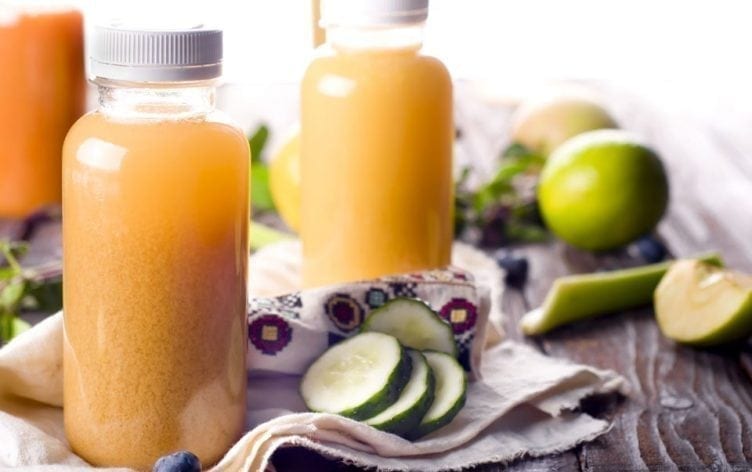
The start of a new year is the perfect opportunity to make healthy lifestyle changes, so you may wish to jump-start weight loss, eat a more balanced diet or work toward a fitness goal. But since trendy diets keep popping up, it’s important to separate fact from fiction.
Detoxing and juicing are two trends that aren’t going away anytime soon. “Detox diets” are usually based strictly on a variety of fruit and vegetable juices coupled with water. They promise to shed weight in record time while ridding your body of harmful toxins. But how much truth is there to these claims?
Myth 1: “Detox diets” are the only way to cleanse your body of harmful toxins.
All the juice in the world can’t compete with the natural detoxification that your body does every day! Your kidneys, liver and immune system work around the clock to filter out harmful toxins and rid your body of pathogens. But there’s good news: Consuming vegetables and fruits enhances this natural detox system by providing a boost of antioxidants, phytochemicals and vitamins.
Myth 2: Juicing will result in long-term weight loss.
As promised, juicing can lead to drastic, short-term weight loss, as a result of cutting calories and losing water weight. Without any solid food to supply starches and fiber, your body doesn’t hold on to water — leading you to quickly shed pounds. However, juicing alone cannot consistently supply all the essential nutrients you need, and it is likely to result in “yo-yo dieting.” While fruits and vegetables are certainly important for long-term weight loss, a balanced diet also includes lean protein and healthy fats as well as crucial micronutrients.
Myth 3: Detox diets are suitable for everyone.
The potential pitfalls of juicing mean that detox diets aren’t the best choice for everyone. Often, weight loss from juicing comes at the expense of muscle loss, since muscle maintenance requires dietary protein. With calorie-restricted detox diets, you might not even have the energy to work out. This can result in further loss of lean body mass, which wouldn’t be desirable, especially for athletes. Juicing also removes the pulp and fiber from fruits and vegetables, which makes their natural sugars easier to absorb. This can lead to a spike in blood sugar that could be unfavorable for diabetics.
With these myths in mind, it’s important to recognize that juicing itself — not juicing under the guise of a restrictive detox diet — can also be beneficial. Here are three tips to healthfully incorporate juicing into your eating plan:
- “On-the-go” nutrition. In the hectic routine of daily life, it can be hard to find time for nutritious, balanced meals. Juicing fruits and vegetables can provide a convenient alternative to cooking a hot meal. Juices can complement a complete meal — just make sure to take your juice with more substantial foods high in fiber, protein and healthy fats. This is a strategy to eat on the go without relying on fast food!
- Diversify your diet. If you don’t love fruits and vegetables, kale, pomegranates and beets can be intimidating to incorporate into traditional meals. Juicing allows you to add an array of fruits and vegetables to your eating plan without all the slicing, peeling and sautéing!
- Immune boost. With cold and flu season upon us, your health is more important than ever. Juicing allows for rapid absorption of vitamins and antioxidants that support your immune system. While whole fruits and vegetables also provide these nutrients, juicing offers a quick way to increase intake if you find it hard to meet daily recommendations.
Keep these facts in mind as you’re bombarded by trendy diets, and always consider what is realistic and sustainable for a healthy lifestyle in the long run!



